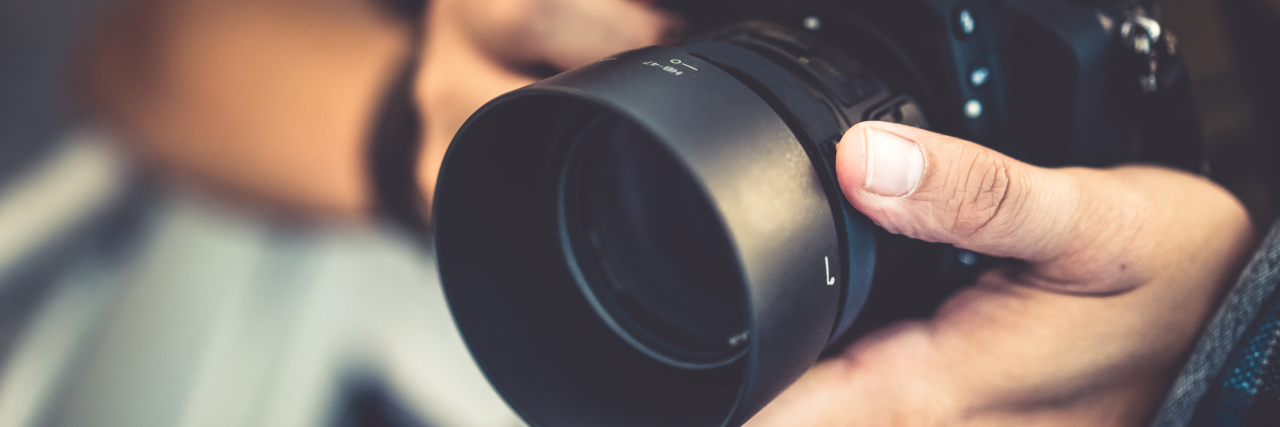What Photography Has Taught Me About Living With a Movement Disorder
Y’all ready for a slightly different article from me? I thought I should mix up what I’m writing just to keep things interesting; hopefully, you’re willing to come with me as I do.
I am by no means a professional photographer. People have called me a “semi-professional” photographer, but even that I think is a stretch. I’m just someone with a camera who has had some amazing opportunities to capture incredible moments in people’s lives. Sometimes the pictures turn out all right, sometimes they don’t, but that’s the excitement of photography.
I started shooting when I was in high school. I still have, and occasionally use, my first camera. It’s pretty basic, but it gets the job done. I have another camera body and a couple of lenses, so I’m by no means a full production, but I have what I need. In high school and the beginning of college, I was a portrait photographer, as well as a protest photographer, two radically different arenas. I can say with 100% certainty that it is much easier taking a portrait, but you also get much more adrenaline and excitement from protest photography. I’ve gotten the chance to photograph protests in cities like Chicago and Washington, D.C., take senior pictures for my friends to celebrate their high school graduation, and even just impromptu photoshoots when I happened to have my camera with me and someone wanted their picture taken.
I am, by day, a senior undergrad studying neuroscience. Also by day, I work at my school’s library. But one thing that has enriched my life and made difficult days enjoyable is photography. I fell out of it for a couple of years while I dealt with college, but recently I’m getting back into it. But something has changed with me since I took photos back in high school.
While not required, photography for me has always been much easier due to my sight (there are some extraordinary photographers who have poor vision or are totally blind, so vision is not required for taking great pictures). Now, a couple of years ago, I developed a movement disorder known as tardive dyskinesia. I write about it a lot, but it has changed my life in some major ways, and some tiny ways as well, so I figured I would give this little-known disorder a brighter spotlight.
TD has caused me to develop tics in my eyes, head, and arms. Specifically, hard blinking and eye-rolling were the first ones and still remain with me. I’d like for you to imagine, for a moment, trying to take a picture with your eyes closed. If you want to make this interactive, I’ll give you a challenge. Pick an item around you, pull out your phone, and close your eyes. Now I want you to try your best to take a great picture of the object, without looking. (If you did this, let me know how you did in the comments.)
Blinking hard and rolling my eyes constantly has negatively impacted my vision. And with that comes difficulty taking pictures at times. How can I properly adjust my lenses if I suddenly have a massive episode of tics that made it hard to see? Well, the answer is pretty boring.
Remember when I said there are some great photographers around the world who have low vision or are totally blind? If you look at their work, you would never be able to tell they couldn’t see. Granted, I am not in that same boat as my vision is not absent, but I bring them up as a matter of inspiration. If these great men and women of art can accomplish much in their lives (though their work is not appreciated as much as it should be) while having difficulty seeing, I believe I can still take good photos with my tics.
I love photography. Even though I don’t have the resources or true passion to turn it into a career, I am passionate about it as a hobby. The best thing I have ever experienced with photography is when I ask my friends if I can take their photos and they say, “oh no, I look awful in pictures” or “I hate the way I look.” I understand those feelings completely, because it’s how I felt when I got my tics. I didn’t want to have my picture taken in case my tics showed up. But the most rewarding part of taking photos is after I hear people say they hate the way they look, when I take their picture and I get to show them how beautiful they are. I have yet to photograph anyone that I wasn’t able to convince that they are the reason the picture is good, not me. Photography allows me to give to other people what I needed for so long: reassurance that my outward appearance doesn’t define me, but that our outward appearance is just the tip of the iceberg in terms of the inner beauty in all of us.
My tics may get in the way of me taking pictures, and they may get in the way of me wanting my picture taken. But I love photography, and the ways I am able to help people through it, too much to simply give in, throw in the towel and say, “well, I guess I have to find a new passion.” No! I have been able to show people that they are beautiful, despite wrongly convincing myself that I am not because of my tics. They say pictures are worth a thousand words. What a cheap price to put on photography. Pictures can change lives, just like how they have changed mine. And my tics are not strong enough to ruin photography for me.
Getty image by ArisSu.

